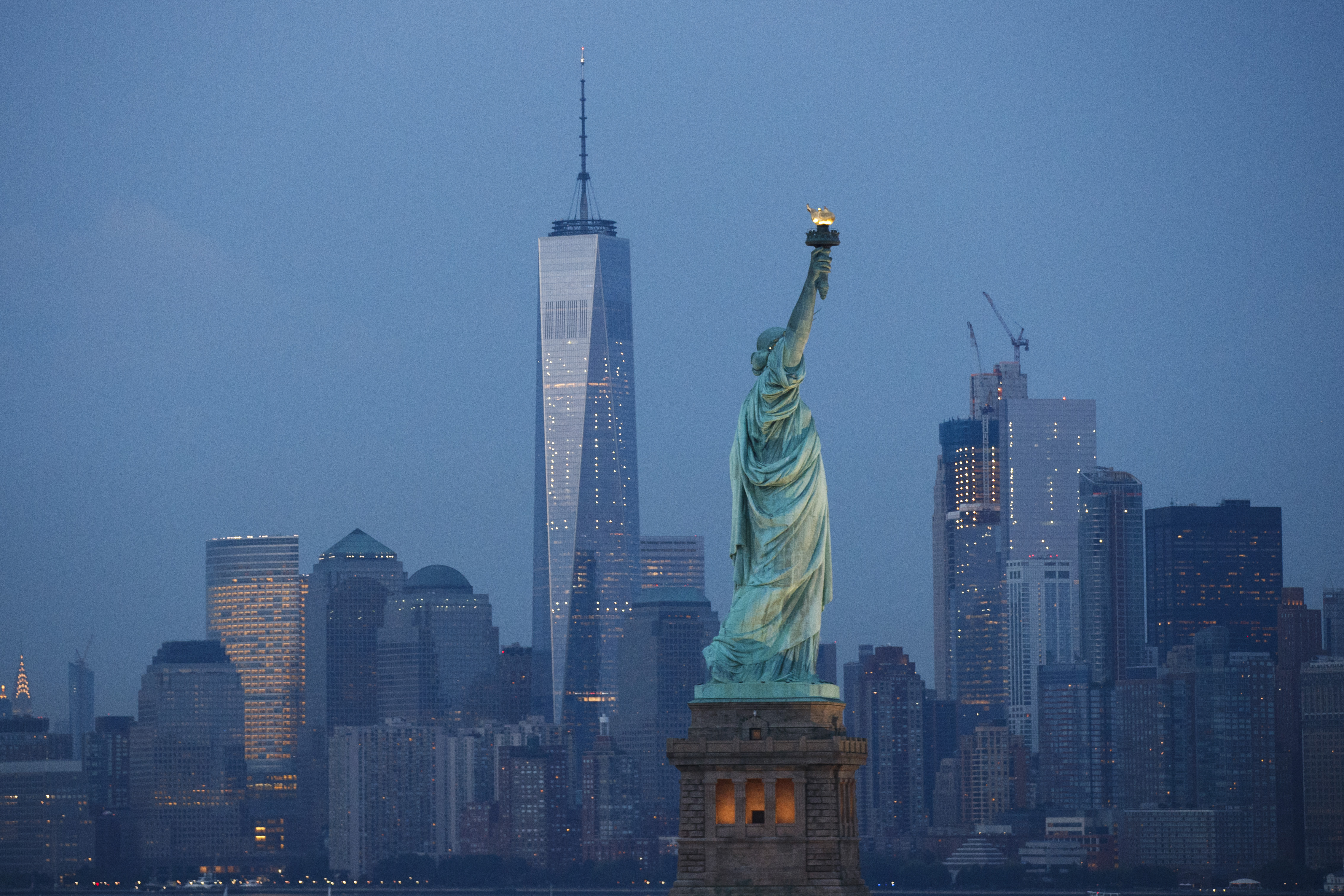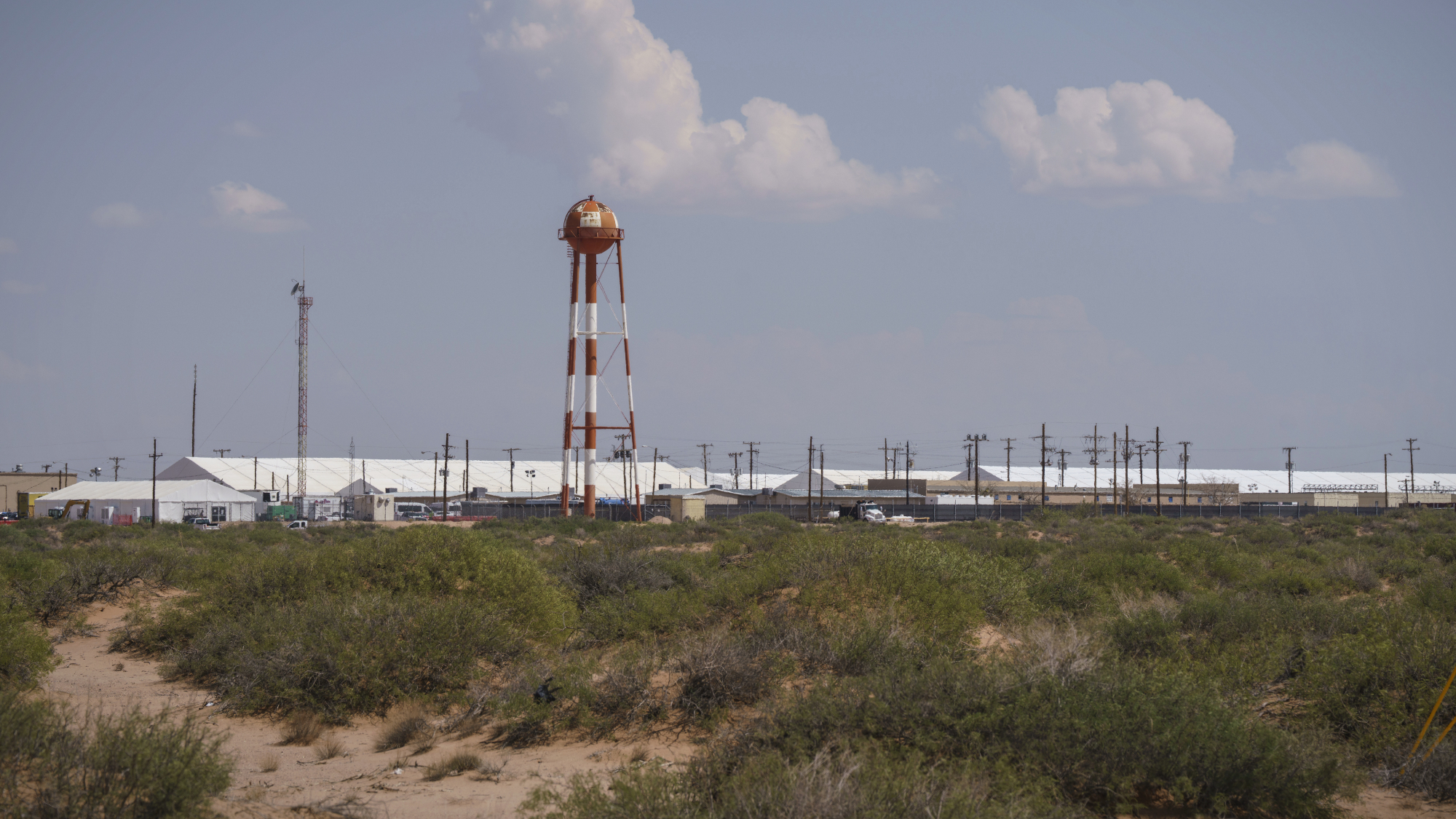The myth of America's immigration problem
There is no immigration problem!


America does not have an immigration problem — no matter what you hear from the well-dressed gasbags in Congress.
Democrats have spent months engaging in righteous posturing over their demand that President Trump and the GOP issue long-term protections for the hundreds of thousands of unauthorized immigrants who were brought to America illegally as children. (As is typical with the Dems, however, it remains unclear how much of this is mere wind, and how much they'll actually fight for). Meanwhile, in return for protecting the so-called DREAMers, Republicans are coalescing around a demand for a drastic reduction in legal immigration, especially for family members.
This legislative showdown has led many pundits to argue that Democrats will have to give. The New York Times' Ross Douthat argues that extreme anti-immigrant voices like top Trump aide Stephen Miller should be accommodated at the negotiation table, because he represents the roughly one-third of people who want decreased immigration, and that's what it's going to take to get a lasting bargain.
The Week
Escape your echo chamber. Get the facts behind the news, plus analysis from multiple perspectives.

Sign up for The Week's Free Newsletters
From our morning news briefing to a weekly Good News Newsletter, get the best of The Week delivered directly to your inbox.
From our morning news briefing to a weekly Good News Newsletter, get the best of The Week delivered directly to your inbox.
This is nonsense. America does not have an immigration problem. We simply should not listen to those who say that the trouble with America is that we're letting too many foreigners in.
The lessons of immigration restrictionists of times gone by is instructive here. Previous anti-immigrant panics were driven by whipped-up fears over assimilation, cultural change, and crime — the poverty and Catholicism of the Irish, the beer-drinking habits of Germans, the criminal proclivities of the Italians, and so on. There was a germ of truth to these suspicions — the Irish were indeed Catholic, the Germans did like their beer, and the mafia was and is a real thing. But the apocalyptic predictions of the Know Nothings (who were themselves very often recent immigrants or descendants thereof, in another classic American tradition) and other similar movements turned out to be totally illusory. America rapidly and successfully assimilated these populations — they both attained and adjusted the cultural baseline, both becoming Americans and adding a bit to what it means to be an American. Anxious white Americans have been predicting disaster over poor "new stock" immigrants for well over 100 years — and have been consistently wrong every time.
Most of today's immigration restrictionists won't say this in polite company — but their gripes are largely about race. After all, things are different now from the huge waves of migration from Europe in the 19th century in that the countries of origin are less white. Today, Latin America and especially Mexico make up the majority of immigrants, while Southeast Asians make up about a quarter.
America is home to tens of millions of immigrants. Indeed, "a record 43.2 million immigrants [were] living in the U.S. in 2015, making up 13.4 percent of the nation's population," Pew reports. They are, of course, just as diverse as their varied origins suggest. But broadly speaking, Mexican immigrants are disproportionately less educated and poor, typically working in agriculture, low-paying service jobs, manufacturing, or construction; while Asian immigrants tend to be college-educated and working middle-class or higher jobs. Latin American immigrants from outside Mexico are in the middle, a bit worse off than the American average but not by much.
A free daily email with the biggest news stories of the day – and the best features from TheWeek.com
This makes less difference than quietly race-obsessed conservatives assume. In terms of actually existing American culture, Latinos are already much better integrated than Irish, Italians, or Germans were when they arrived in large numbers. Indeed, Latin American culture has made a such a deep imprint on the United States that it might fairly be considered a constitutive element of American culture as whole.
Latinos have been living in parts of the United States since before the very first colonial British immigrants. Spanish is a de facto second language in much of the country, Mexican food (and its various adaptations) can be found in virtually every city and town, and Catholicism has long since become just another ordinary flavor of American Christianity. If we consider history, this shouldn't be remotely surprising. It turns out when you flagrantly steal half of Mexico, it makes a bit of a lasting imprint.
It is surely true that immigrants can create some social tension, especially in communities without a lot of experience with them. But if anything, America is better positioned to absorb the current generation of immigrants than it was 160 years ago, when poverty-stricken Irish families were piling into New York City by the tens of thousands.
That city — the American city — is itself highly telling. It has been chock-a-block with immigrants for basically as long as it's existed. Today it's over one-third foreign born — but instead of being a hotbed of ethnic tension, New Yorkers have by and large learned to live side by side in peace. It turns out the places with the greatest experience of immigration also tend to be the least suspicious of it.
The extreme anti-immigrant wing of the Republican Party, of which Miller and Rep. Steve King (R-Iowa) are the most important members, cannot reconcile itself to this fact. Being a white nationalist in an extremely diverse country is to effectively hate that country. Immigration haters want to destroy the oldest, most distinguishing, and most interesting characteristics of our nation in favor of an invented tradition of chintzy white bread garbage.
But obviously, immigration policy is not just about race, diversity, and America's historic spirit of openness to new people, cultures, and ideas. Policymakers still must carry out sensible economic policy so immigrants can get jobs alongside the native born without hurting the prospects of the nation's existing citizenry. Studies suggest immigrants aren't taking jobs away from native-born people or putting significant downward pressure on wages. That probably has something to do with the fact that immigrant inflows are not that large: around 1 million per year on net for the last 30 years, well within the ability of a very large country with deep immigrant traditions to absorb.
However, it is true that the American economy has been lousy for the better part of a decade. Indeed, poor decisions on the part of the Democratic elite in 2009-10 responding to the Great Recession (and Republican austerity after that) made the last decade the worst economic performer since the 1930s. Those mistakes, and the previous generation of neoliberal policy, did immensely more damage to the prospects of native-born workers than any immigrant wave ever could.
Anti-immigrant zealots have seized on the lackluster economy as a way to scapegoat immigrants. But if Democrats can gain power and get their act together on economic policy, it's quite likely that scapegoating of immigrants would fade into the background, most people would go back to not noticing the various ethnic neighborhoods scattered across the nation, and everything will be fine.
Ryan Cooper is a national correspondent at TheWeek.com. His work has appeared in the Washington Monthly, The New Republic, and the Washington Post.
-
 Grok in the crosshairs as EU launches deepfake porn probe
Grok in the crosshairs as EU launches deepfake porn probeIN THE SPOTLIGHT The European Union has officially begun investigating Elon Musk’s proprietary AI, as regulators zero in on Grok’s porn problem and its impact continent-wide
-
 ‘But being a “hot” country does not make you a good country’
‘But being a “hot” country does not make you a good country’Instant Opinion Opinion, comment and editorials of the day
-
 Why have homicide rates reportedly plummeted in the last year?
Why have homicide rates reportedly plummeted in the last year?Today’s Big Question There could be more to the story than politics
-
 ‘Being a “hot” country does not make you a good country’
‘Being a “hot” country does not make you a good country’Instant Opinion Opinion, comment and editorials of the day
-
 ICE: Now a lawless agency?
ICE: Now a lawless agency?Feature Polls show Americans do not approve of ICE tactics
-
 Trump inches back ICE deployment in Minnesota
Trump inches back ICE deployment in MinnesotaSpeed Read The decision comes following the shooting of Alex Pretti by ICE agents
-
 Is Alex Pretti shooting a turning point for Trump?
Is Alex Pretti shooting a turning point for Trump?Today’s Big Question Death of nurse at the hands of Ice officers could be ‘crucial’ moment for America
-
 Migrant death in ICE custody ruled homicide
Migrant death in ICE custody ruled homicideSpeed Read Geraldo Lunas Campos, 55, died of asphyxia, the coroner said
-
 ICE memo OKs forcible entry without warrant
ICE memo OKs forcible entry without warrantSpeed Read The secret memo was signed last May
-
 Washington grapples with ICE’s growing footprint — and future
Washington grapples with ICE’s growing footprint — and futureTALKING POINTS The deadly provocations of federal officers in Minnesota have put ICE back in the national spotlight
-
 Will Democrats impeach Kristi Noem?
Will Democrats impeach Kristi Noem?Today’s Big Question Centrists, lefty activists also debate abolishing ICE
